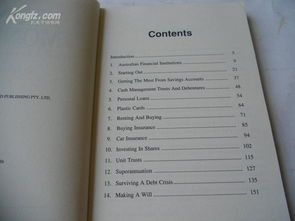How to Make Money Last Until Payday
Managing your finances can be challenging, especially when you’re waiting for your next paycheck. It’s crucial to stretch your income to cover your expenses until then. Here are some strategies to help you make your money last until payday.
1. Budgeting

Creating a budget is the cornerstone of financial management. It helps you track your income and expenses, ensuring that you don’t overspend. Here’s how to create a budget:
-
Track your income: List all your sources of income, including your salary, side hustles, and any other forms of income.
-
Track your expenses: Keep a record of all your expenses, including rent, utilities, groceries, and other bills.
-
Categorize your expenses: Group your expenses into categories, such as housing, transportation, and entertainment.
-
Set spending limits: Allocate a specific amount for each category, ensuring that you don’t exceed your budget.
-
Adjust as needed: Review your budget regularly and make adjustments as your financial situation changes.
2. Prioritize Your Expenses

When money is tight, it’s essential to prioritize your expenses. Here’s a guide to help you decide what to spend on and what to cut back on:
| Priority | Essential | Non-Essential |
|---|---|---|
| 1 | Rent or mortgage | Entertainment |
| 2 | Utilities | Subscriptions |
| 3 | Food | Clothing |
| 4 | Transportation | Travel |
| 5 | Medical bills | Gifts |
Focus on covering your essential expenses first, and then allocate funds for non-essential items if you have any leftover.
3. Cut Unnecessary Expenses

Identifying and cutting unnecessary expenses can significantly stretch your income. Here are some tips:
-
Cancel unused subscriptions: Review your subscriptions and cancel any that you no longer use.
-
Reduce utility bills: Unplug electronics when not in use, turn off lights, and use energy-efficient appliances.
-
Limit dining out: Prepare meals at home instead of eating out.
-
Avoid impulse purchases: Wait 24-48 hours before making non-essential purchases.
4. Save for Emergencies
Building an emergency fund can help you avoid financial stress when unexpected expenses arise. Aim to save at least three to six months’ worth of living expenses. Here’s how to start:
-
Set a savings goal: Determine how much you need to save for your emergency fund.
-
Automate your savings: Set up automatic transfers to your savings account each month.
-
Choose the right savings account: Look for an account with a high interest rate to maximize your savings.
-
Review your progress: Regularly check your savings balance and adjust your contributions if needed.
5. Seek Additional Income
When money is tight, consider ways to increase your income. Here are some options:
-
Side hustles: Look for opportunities to earn extra income, such as freelancing, tutoring, or selling items online.
-
Part-time jobs: Consider taking on a part-time job to supplement your income.
-
Refinance loans: If you have high-interest loans, consider refinancing to lower your monthly payments.



